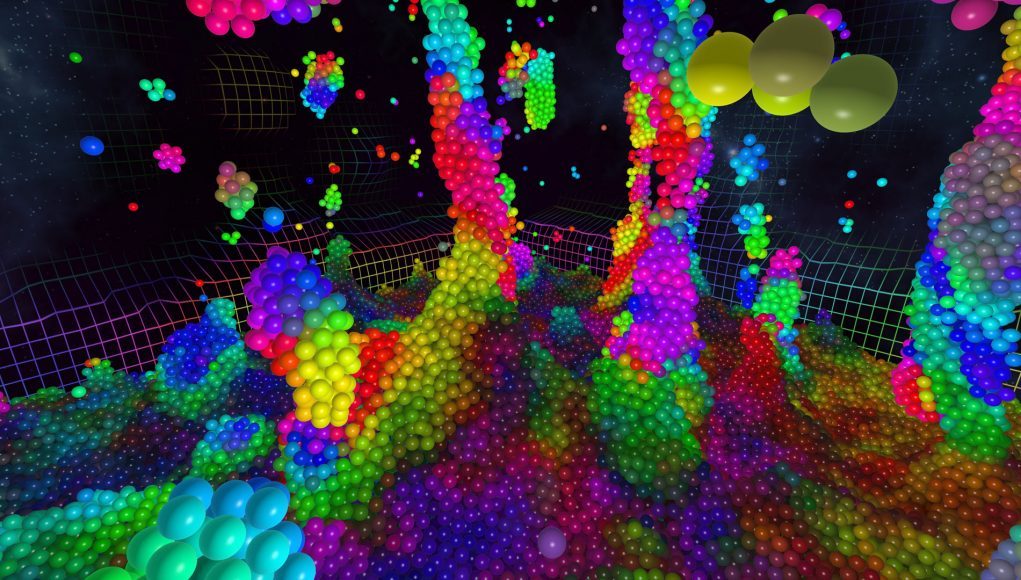Chroma Lab is a mesmerising particle simulation and a simple but stunning VR showcase, using a custom physics engine to calculate the fluid-like behaviour of more than 100,000 particles. While there are no ‘game’ elements, indie developer Sean Tann has created is a well-crafted ‘sandbox’ that offers a number of useful options to tweak or significantly alter the experience.
Rapidly moving, tiny particles are just about the worst things you can throw at YouTube’s video compression; the footage below hardly does Chroma Lab justice. The visual impact of vibrant particles dancing in smooth motion around your head is pure eye candy, and the interactivity offered by the motion controls is very satisfying. Squeezing the grips brings up a few options for how your controllers will affect the simulation, and you can have a different ‘tool’ in each hand. For instance, you can attract particles with one, and blast them apart with the other.
An adjustable slider determines how much force each tool will generate, so you can interact with the particles in very delicate ways, or wreak havoc on the entire scene. ‘Force spheres’ can be placed anywhere, which also have adjustable strength. They’re useful for ensuring you always have a huge cloud of particles at arm’s reach to blast away, but can also be positioned and tuned in ways that create interesting ‘fluid’ formations, which can be saved. There are several preset scenes that show the impressive variety of visuals you can achieve with just a few adjustments to the simulation sliders.
The typical VR minimum spec GTX 970 GPU can push over 100,000 particles at 180Hz (double the display refresh rate), but those with high-end cards will enjoy an even more spectacular simulation (the particle count will auto-adjust based on hardware speed, but this can be changed manually). This feature is one of several welcome ease-of-use considerations, with native Oculus Touch support being another, as well as MixCast support for generating mixed reality footage. Further information about the engine technology is described in a previous article.
Despite being an important aspect of Chroma Lab, the one area that appears to have been overlooked is audio, as there is none whatsoever. I found myself making my own sound effects as I blew stuff up; it would surely benefit from a few impact sounds, but combining audio with complex particle simulation is probably no easy task. While it’s disappointing that the game doesn’t come with default music, you can run any music player in the background and the particles will react to audio pulses. I found the combination of Aphex Twin and reactive particle simulation to be rather addictive; this might be the fastest (legal) route to a near-psychedelic experience.
Without any objectives to speak of, Chroma Lab has limited replay value, unless it becomes your go-to music visualiser. It could also become a popular choice as an abstract introduction for VR first-timers. Oh, and make sure you look at the cursors up close—it’s another world in there. Chroma Lab is available now on Steam (supporting the Vive and Rift), and is coming soon to the Oculus store.







